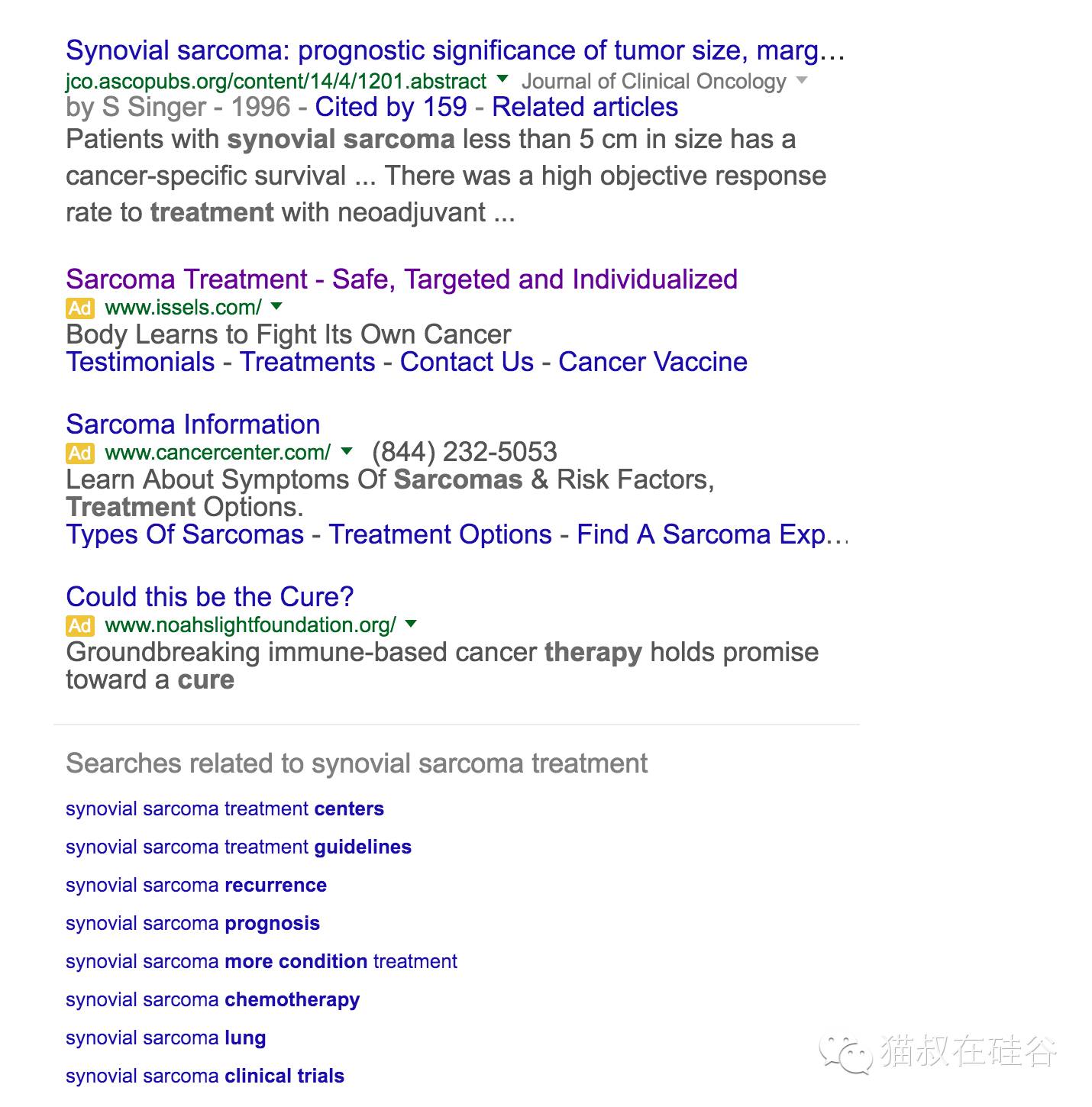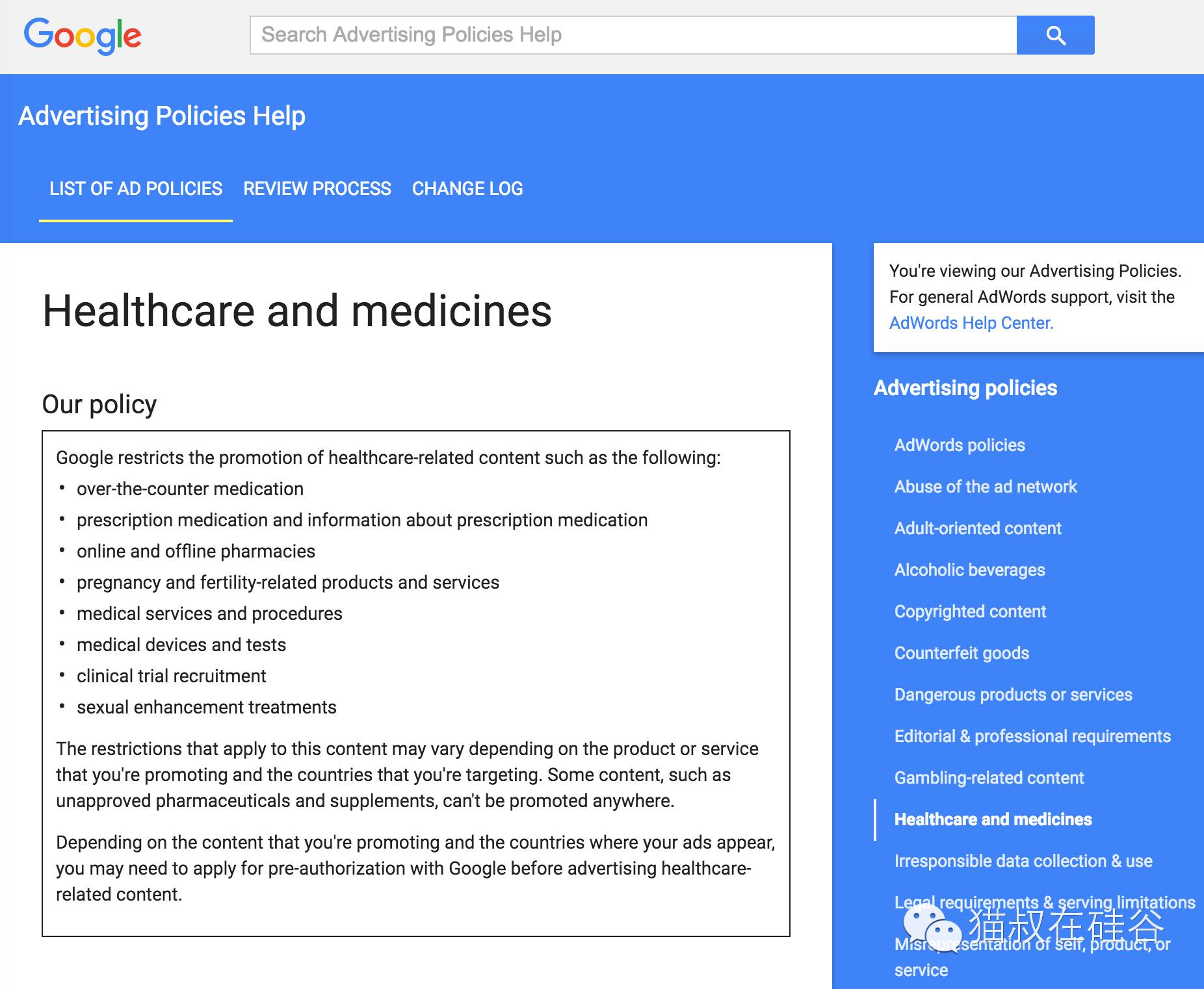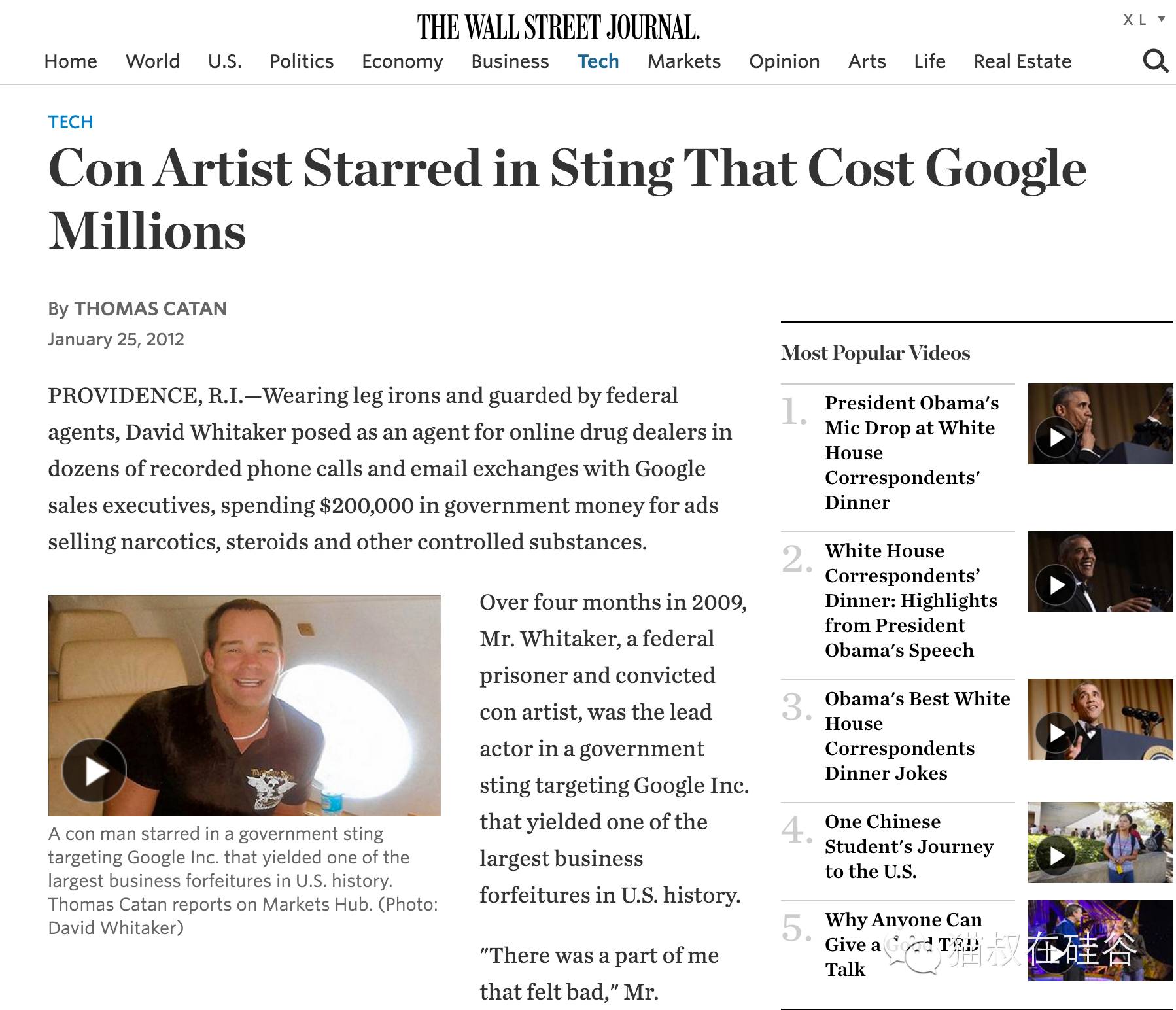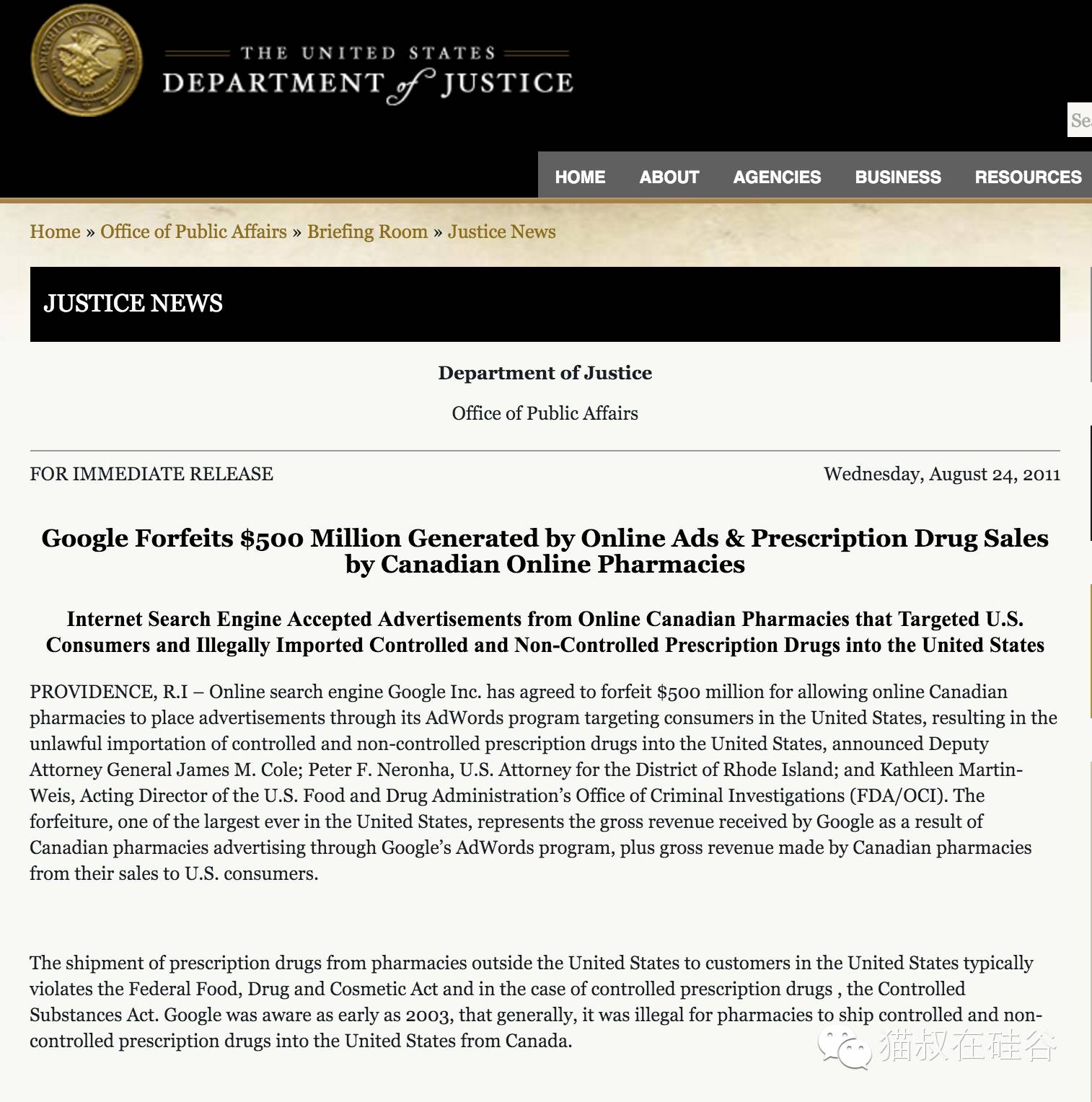How does the U.S. crack down on illegal online medical advertising? Google has also faced fishing enforcement

Baidu has once again become the target of public interest
The tragic death of young Wei Tracy, like another mine pipe, has reignited the public's hatred of Baidu's backlog of fake medical advertising for years. According to media reports, Wei Tracy's family in the pain and suffering of the process of seeking medical advice, suffered from a lot of false medical advertising fraud, not only lost funds in vain, but also delayed valuable treatment time. Not surprisingly, Baidu is involved again. Although the second hospital of the armed police headquarters is a legitimate institution, the outsourcing department was launched in BaiduFalse.Medical advertising violates state regulations.
Public anger is not without reason. This isn't the first time Baidu has been embroiled in a fake medical advertising incident, not even the Nth. As early as 2009, Baidu suffered a severe crisis over the issue, even causing its share price to plummet. Earlier this year, the "hemophilia bar" incident let Baidu once again discredited, and finally with internal punishment and public apology reluctantly calmed down. Wei Tracy's death, so that Baidu in the media reports or social networks have once again become the target.
As China's largest search engine and one of the three internet giants, Baidu has undoubtedly achieved great commercial success in terms of market share, earnings and the company's market capitalisation, but its public image has always been free of the stigma of "false medical advertising". While blaming Baidu for its virtue, many are beginning to miss Google, the global search giant that has effectively exited the mainland market for "many reasons". In a sense, Google's non-evil creed is like a mirror, more obviously against Baidu's inaction in the pursuit of profit or even active participation.
Google's "exit from the mainland" has made netizens more angry with Baidu. To be precise, Google is not exiting the mainland market, but it is not available. Baidu has almost a monopoly in the domestic search market after Google was unable to bring competitive pressure. No matter what kind of fake advertising negative news Baidu burst, it seems that they can not shake the status of becoming the main network of domestic netizens and information access port, at least for the time being. Rumours of Google's return have been circulating over and over again, but there has been no clear message. Perhaps this repeated anger but can not get rid of the mood, is the netizens to Baidu doubled hate the deepest reason.
A similar search in Google's U.S. for Wei's disease for sci-fi sarcoma reveals that Google also has medical ads, but with a more obvious logo. More importantly, Google's paid ads don't affect the rankings compared to Baidu's iconic bid rankings. At the top of the list are always the relevant encyclodedi and official institutions. While Google's Adwords ads are also self-service, a query to Google's U.S. search advertising policy reveals that drug ads in Google's U.S. need to be certified by the U.S. Food and Drug Administration (FDA) and the U.S. Pharmacy Council (NABP). This means that only government-approved formal online pharmacies and government-approved formal drugs and treatments can run drug search ads on Google's U.S. website.

Coupled with Google's proactive automated ad filtering mechanism, in most cases this can effectively eliminate the possibility of seeing fake medical ads on Google. According to a report released by Google, they blocked a total of 780 million illegal ads and blocked 214,000 advertisers last year, including 12.5 million illegal medical and drug ads involving unsan approved drugs or false and misleading propaganda. In many ways, Google is like a mirror of Baidu. On the one hand, Baidu has repeatedly been involved in negative incidents of false medical advertising, and on the other hand, Google has taken the initiative to block illegal advertisingand continuous scientific and technological innovationThis contrast is particularly stark.
Google has been hit with phishing enforcement
If the comparison between Baidu and Google is attributed to corporate ethics, it is undoubtedly the simplest but lazy interpretation. But why can Google not do evil, Google really never do evil? If you look back at Google's history with fake medical advertising, you might be surprised to find that Google has also fallen too high on the issue and has been severely punished. But it is precisely because of the regulator's endless pursuit and clenching, so that Google in the search advertising business has always felt the whip from behind, in order to constantly improve their advertising review mechanism and staff ethics.
Back in 2003, Google was questioned by three different congressional committees over online drug advertising. In July 2004, just a month before Google went public, Sheryl Sandberg, Google's vice president of global online advertising, traveled to Washington, D.C., to testify on the issue as U.S. senators planned to pass two bills regulating online pharmacies. The current Facebook COO said at the time that Google would use a third-party certification service to scrutiny Internet medical and pharmaceutical advertising.
But the series of negative events that followed showed that the world's largest search engine was occasionally embroiled in negative news, even though Google executives had long been aware of the problem with illegal drug advertising. The David Whitaker affair, which broke out in 2009, gave Google its first image on the issue, making it truly aware of the dangers of fake online advertising and the sense of responsibility of search engines to the public. Also in 2009, Baidu was exposed for false medical advertising. In August 2011, just the month Google announced its acquisition of Motorola Mobility, Google settled with the U.S. Department of Justice over illegal online pharmacy advertising, for which Google paid the highest corporate fine of $500 million at the time.
The U.S. government has long been known for its "tough-heartedness" in punishing corporate infractions. Google's fine record has long been broken by two auto companies. In 2014, Toyota was forced to settle a $1.2 billion settlement with the U.S. government for concealing the accelerator problem. However, the new fine record is no doubt owned by Volkswagen. Volkswagen could end up with a $18 billion fine from the U.S. government after 600,000 diesel cars were blown up late last year.

Whitaker, an American counterfeit drug dealer, has long sold fake drugs to U.S. consumers online, falsifying growth hormone and steroid drugs with vegetable oils and protein powders, and selling a bottle of steroids for up to $1,000 or even worthless purified water. He faces up to 65 years in prison (he was 34 at the time) after being extradited from Mexico to the United States in 2008. In exchange for a commutation of his sentence, Whitaker confessed to federal investigators that Google ad sales staff had offered to help him avoid Google's filtering mechanism and run fake drug ads online, knowing it was illegal.
Given Google's good public image, it is clear that his confession alone cannot be used as a valid confession.Was.Even the judiciary is hard to believe. As a result, Whittaker, who did not want to die in prison, worked with the U.S. judiciary to complete one of the most famous fishing investigations in the history of fake drug advertising in the United States. The justices forged a new identity for Whitaker, Jason Corriente, the CEO of a non-existent online advertising agency, in an attempt to get the fraudster to take legal action against Google over how he worked with Google's advertising sales staff to sell counterfeit drugs.
By running $20,000 a month in ads, Whitaker is represented by Google's designated advertising customer service. In several phishing investigations and forensics processes, Google Customer Service actively helped Whittaker optimize, analyze, select and purchase keyword ads, and even helped him make a change to his website, masquerading as a medical information site through Google's automated review mechanism and then reverting to buying options by temporarily removing home drug ads and buying buttons.

The phishing law enforcement, which cost the U.S. judiciary $200,000, ultimately cost Google $500 million in sky-high fines. To prove that this was not a rat behavior by individual Google employees, the U.S. justice agency directed Whitaker to work with customer service representatives in Google's California, Mexico and China regions to run illegal ads related to steroid drugs, and even the tightly controlled abortion drug methadone and psychotic drugs.
Prominent media outlets such as the Wall Street Journal and Wired have documented the phishing law enforcement that has left Google in the lid on the headline "This professional fraudster made Google lose $500 million." Whitaker eventually reduced his sentence from the original 65 years to five years with a "significant performance." Although he could not die in prison, the counterfeit drug cheat could face up to $10 million in compensation from former victims of counterfeit drugs.
In an interview with the Wall Street Journal at the time, Peter Neronha, the US attorney general, revealed that some Google executives were aware of illegal pharmacies running search ads on their websites. "Based on the documents we reviewed and the witnesses, we know that Larry Page himself knew." The comments were clearly shocking and had a serious impact on Google's image of no wrongdoing, which Google vehemently denies.
Don't do evil behind the whip
After the popularity of the Internet, search engines have become not only the main source of information for people, but also an important way for them to seek medical treatment. Back in 2010, Google estimated that 100 million Americans had 4.6 billion health-related keyword searches that year. According to a Pew survey that year, as many as 60 percent of U.S. adults search the Internet for health information, and 60 percent of Internet users believe that searching for information can affect their health decisions.
Because of the high cost of medical care in the United States, many unseconded patients choose to buy controlled prescription drugs from online pharmacies abroad in order to reduce the cost of seeing a doctor. From 2003 to 2009, Google provided advertising support to online pharmacies in Canada and Mexico to help them run and optimize Adwords ads, according to a settlement between Google and the Justice Department. This not only helps them sell drugs online to U.S. consumers, but also opens up the possibility of illegal access to prescription drugs and substance abuse.
Since 2009, the U.S. government has stepped up investigations into illegal online medical advertising, and Google has been refining its advertising controls ever since. In 2009, the FDA's Drug Marketing, Advertising and Communications Service (DDMAC) sent a letter to 14 pharmaceutical companies arguing that their drug search ads were misleading and only describing the benefits and the risks of not adequately disclosing side effects.
At the end of that year, the FDA conducted a week-long joint investigation with other government agencies, finding that 136 websites involved the illegal sale of unapproved or misn marked drugs to U.S. consumers. Based on the findings, the FDA then sent warning letters to the site operators and asked Internet service providers and domain registrars to terminate the services.
It was under intense regulatory pressure that Google began taking steps in 2009 to stop online pharmacies from illegally selling prescription drugs to U.S. consumers. Starting in 2010, all online pharmacies that run drug search ads on Google must be certified by the U.S. government as an Internet Pharmacy Practice (VIPPS), and online advertisers of prescription drugs must be certified as online advertising by the U.S. Pharmacy Council (NABP). Microsoft Bing and Yahoo then implemented similar policies in June of that year.
Under rules implemented by the U.S. Pharmacy Council in 2014, only drug sites that comply with local and local regulations can register domain names and provide services, meaning licensed online pharmacies in other countries cannot sell prescription drugs to U.S. consumers. In the same year, Google announced a $250 million dedicated fund to crack down on "illegal online pharmacies" while increasing the display of content related to prescription drug abuse and working with legitimate pharmacies to combat the marketing of illegal pharmacies.
The U.S. government's campaign to crack down on fake drug ads also includes a variety of nutritional health-care ads. In June 2012, the FDA ordered Google to block all ads in the U.S. that offer detox and health care products, meaning that many health products that sell as "detoxifying and removing heavy metals from the body" will not be able to run ads on Google. It's worth noting that the FDA didn't hold a hearing, nor did it inform the companies in advance or afterwards, or even give them a chance to complain and explain.
Global Health Center, a detox health care company, is a longtime partner in Google's search ads, spending hundreds of thousands of dollars a year on Google. As a result of the sudden blocking of their advertising accounts, their sales plummeted 25-30 per cent in the following week, losing $70,000 in revenue in a month. Google only provided them with an explanation a month later because the FDA considered all over-the-counter products to be unsalted, "dangerously misleading" and potentially physically harming consumers, and asked Google to block all drug ads involving "heavy metal detoxes."
Summary.
The Internet has changed the way people live, including in the area of health care. On the one hand, the Internet facilitates the process of seeking medical treatment, on the other hand, it also brings cheating space to many fraudsters and illegal operators.Whether it's Baidu, which is "pre-lying", or Google, which netizens think is "not evil", it has made mistakes on this issue because of the imperfection of the filtering mechanism and the one-sided pursuit of profits.
As the main network information portal, search engine has undoubtedly become an infrastructure and public utilities, directly related to the quality of people's livelihood. Because of this, the network search company in the normal growth performance of the driving force, should also bear the corresponding social responsibility. However, this sense of responsibility should not be based on a company or manager's sense of ethics, but should be based on the continuous improvement of regulatory mechanisms as wellStrict penalties for making mistakes, especially for a dominant or even monopolistic enterprise.
As the world's largest search engine, Google not only dominates the vast majority of the market share, but also because of the market share under heavy pressure from regulators. The European Union has launched a five-year antitrust investigation into the monopoly of Google Search and Android operating systems, with the possible penalties. This bitter treatment, industry giants Microsoft and Intel have both been taught and paid a heavy price.
Behind Google's "don't do evil" lies the founder's moral beliefs, but more importantly, the sword of Damoaklis hangs behind it. Only the ever-improving regulatory mechanisms andIt is only by not slackening the penalties that a commercial company can do nothing evil. More precisely, I dare not do evil.
Finally, the fight against false medical advertising is only the cure, the most effective and the most should do is to combat false medical fraudsters from the source.

Send to the author